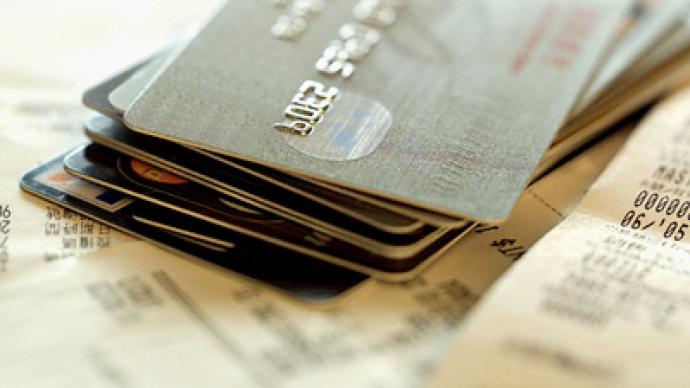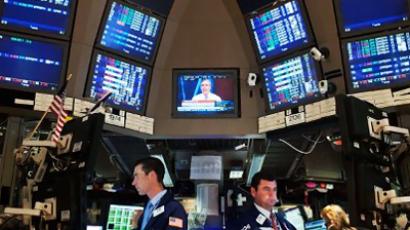Americans sinking into debt

With Americans losing jobs left and right, more and more people in the US are relying on credit cards to make ends meet. So many, in fact, that Americans are 368 percent more in credit debt right now than they were two years ago at this time.
The Q2 2011 Credit Card Debt Study released by CardHub.com reveals that American consumers managed to rake up $18.4 billion in credit card debt in the second quarter of this year alone, 66 percent more than they went under during the second quarter of 2009.Analysts predict that if this year’s trend continues, credit card debt in America should accumulate to around $54 billion by the end of 2011. Currently the country’s total is $772 billion in outstanding debt.Odysseas Papadimitriou, CEO of CardHub.com, says that the statistic is “mind boggling,” especially when compared to numbers from two years earlier. A new report by Absolute Strategy Research, however, suggests that two-thirds of Americans are less likely to borrow or spend in the wake of the recent financial crisis. As more citizens are forced to become reliant on credit due to a lack of a paycheck, though, they are adding more and more items onto their charge cards. Papadimitriou is weary of the credit numbers, however, and suggests that “If we end up overleveraging ourselves again, it’s going to be the same thing repeated in a few years,” referring to the credit bubble that burst only years ago."There is no doubt in my mind that a lot of consumers are reverting back to pre-recession habits and that this is why we are witnessing such a dramatic increase in credit card debt (net of charge-offs). Anyone whose income was tied to the housing boom — either directly or indirectly — should realize that those years aren't coming back unless we find ourselves in another bubble," adds Papadimitriou.Demographers mulling over the 2010 Census data announced earlier this week that more Americans are living in poverty right now than in the entire 52 years that the US Census Bureau has been tracking the statistic.














